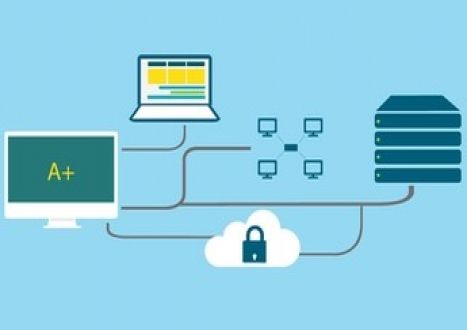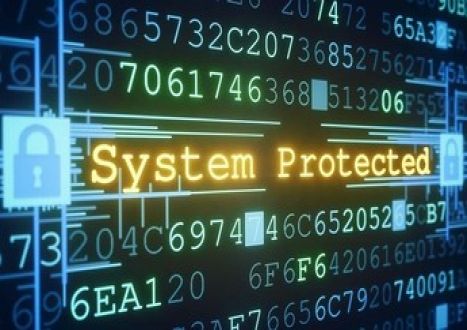- Home
- Video Courses
- Certifications
- DA0-001: Data+ Dumps


DA0-001: Data+ Certification Video Training Course
DA0-001: Data+ Certification Video Training Course includes 160 Lectures which proven in-depth knowledge on all key concepts of the exam. Pass your exam easily and learn everything you need with our DA0-001: Data+ Certification Training Video Course.
Curriculum for CompTIA DA0-001 Certification Video Training Course


















DA0-001: Data+ Certification Video Training Course Info:
The Complete Course from ExamCollection industry leading experts to help you prepare and provides the full 360 solution for self prep including DA0-001: Data+ Certification Video Training Course, Practice Test Questions and Answers, Study Guide & Exam Dumps.
CompTIA Data+ (DA0-001) Study Guide with Practice Exam
Course Overview
Understanding the Value of CompTIA Data+
CompTIA Data+ is a vendor-neutral certification that validates essential data literacy and analytics skills. As organizations increasingly rely on data to make decisions, the ability to gather, interpret, analyze, and communicate insights has become central to professional success. This course is designed to provide comprehensive training that prepares learners to sit for the CompTIA Data+ (DA0-001) certification exam while also equipping them with real-world skills that apply across industries.
Why This Course Exists
Many professionals find themselves surrounded by data but lack the structured knowledge to translate raw information into meaningful insights. Data professionals, business analysts, and IT specialists often face the challenge of moving beyond simple reporting into deeper analytical practices. This training course exists to bridge that gap by introducing learners to the foundations of data management, data mining, visualization, quality assurance, and governance.
The Approach of the Course
This training program has been structured with clarity and progression in mind. Learners begin with foundational concepts and gradually move toward advanced applications. Each section combines theoretical understanding with practical examples. By the end of the course, participants will not only be ready to take the DA0-001 exam but will also have developed a mindset that approaches problems through a data-driven lens.
The Growing Need for Data Skills
Across every industry, from healthcare to finance, from retail to technology, data is the central driver of decision-making. Organizations are investing heavily in tools, technologies, and professionals who can extract meaning from the vast amounts of information available. With the CompTIA Data+ certification, learners place themselves in a position of advantage, as this credential demonstrates both competence and confidence in working with data.
Alignment with the DA0-001 Exam
The CompTIA Data+ exam is structured around specific domains that include data concepts and environments, data mining, data analysis, visualization, governance, quality, and communication. This course aligns closely with these domains, ensuring that learners understand not only the exam objectives but also how those objectives apply in real-world environments.
Expected Outcomes of the Course
By the conclusion of this training program, learners will be able to define and explain essential data concepts, manipulate and prepare data for analysis, evaluate data for accuracy and reliability, design meaningful data visualizations, and understand governance policies that guide ethical and secure data usage. These outcomes reflect the expectations of the CompTIA Data+ certification while also offering practical workplace value.
Who Should Take This Course
This course is suitable for professionals at different stages of their careers. Business analysts who want to strengthen their analytical foundation, IT professionals who wish to expand into data-centric roles, managers who need to make better data-driven decisions, and newcomers looking to enter the data field will all find this program valuable. Because the content is vendor-neutral, it applies broadly across tools and platforms.
Commitment to Comprehensive Learning
The course has been designed not as a crash program but as a deep and engaging learning journey. While the goal is certification success, equal importance is placed on developing professional skills that last beyond the exam. Learners are guided step by step, ensuring no prior gaps hinder their progress.
Modules
Module One: Introduction to Data Concepts and Environments
The first module lays the foundation by exploring the fundamental concepts of data. Learners are introduced to types of data, such as structured, semi-structured, and unstructured, and the different sources from which data originates. They gain an understanding of how data flows through systems, beginning from collection and storage to eventual usage. The module also examines data environments, including databases, data warehouses, and data lakes, explaining their roles and differences. By the end of this module, learners will have a strong conceptual grasp of the environments in which data lives.
Module Two: Data Mining and Collection
This module focuses on the processes of obtaining and organizing data. Learners explore techniques for data acquisition, both manual and automated, and the tools available for extraction. Emphasis is placed on the importance of gathering accurate and reliable data to ensure valid analytical outcomes. Real-world scenarios are presented, such as scraping information from web platforms, importing data from spreadsheets, and working with APIs. Participants also learn how to evaluate the credibility of data sources to minimize bias and error.
Module Three: Data Analysis Techniques
Once data has been gathered, the next step is making sense of it. This module introduces learners to key techniques in data analysis. Topics include descriptive statistics, inferential methods, and identifying trends or anomalies. Learners also discover how to use data to answer business questions, test hypotheses, and uncover patterns. Both qualitative and quantitative approaches are discussed to provide a well-rounded view of how data can be interpreted. Practical exercises ensure learners are able to apply these methods confidently.
Module Four: Data Visualization and Reporting
The ability to communicate insights effectively is just as important as conducting the analysis itself. This module teaches learners how to transform raw numbers into meaningful visuals. Concepts such as chart selection, dashboard design, and effective storytelling with data are explored. The importance of tailoring visualizations to different audiences is emphasized, highlighting how executives may prefer high-level dashboards while technical teams may need granular reports. Learners gain familiarity with visualization tools and best practices that make data more accessible and actionable.
Module Five: Data Governance and Quality
Accuracy, reliability, and ethical use of data are covered in this critical module. Learners examine concepts such as data integrity, privacy, and compliance. They study the frameworks that ensure data is trustworthy and secure, as well as practices for identifying and correcting data quality issues. Real-world case studies demonstrate how poor governance or inaccurate data can lead to serious business consequences. By the end of this module, learners will be equipped with a clear understanding of why governance is essential in every data-driven organization.
Module Six: Exam Preparation and Practical Application
The final module brings together all the concepts covered in the course and focuses on exam readiness. Learners review each domain of the CompTIA Data+ exam, reinforcing key terms and objectives. Practice questions are integrated throughout the module, simulating the style and difficulty of the real test. At the same time, emphasis is placed on practical application, ensuring learners understand how to use their skills in professional environments. This dual approach of certification readiness and workplace application gives participants the confidence to succeed both in the exam and in their careers.
Integration of Modules into a Learning Path
Each module builds upon the previous one, forming a logical progression of knowledge. The course begins with the basics of data environments, moves into acquiring and analyzing data, emphasizes communication through visualization, and concludes with governance and exam preparation. This progression mirrors the data lifecycle itself, making the learning experience natural and intuitive. Learners are encouraged to revisit earlier modules as needed, reinforcing knowledge and ensuring mastery.
The Practical Emphasis of Modules
While the modules are aligned with exam objectives, they are also grounded in practical scenarios. Learners are constantly shown how theory translates into workplace action. Whether it is cleaning a dataset, designing a dashboard, or reviewing governance policies, the emphasis is always on usability. This practical emphasis ensures that the time invested in the course results in skills that carry professional value beyond the certification.
The Bridge Between Learning and Certification
Ultimately, the modules are designed to serve two purposes: building knowledge and securing certification. They function as a bridge between the learner’s current skill set and the requirements of the CompTIA Data+ exam. The structure ensures that by the time participants complete the final module, they have achieved both academic understanding and professional readiness.
Requirements of the Course
Understanding the Importance of Requirements
Before beginning a training program of this scale, it is essential to understand what is required of learners. Requirements serve as a roadmap that ensures students have the necessary background knowledge, technical environment, and commitment to complete the journey successfully. Without meeting these requirements, learners may find themselves struggling to keep pace with the concepts and applications presented throughout the course.
General Academic Readiness
One of the most fundamental requirements is general academic readiness. The CompTIA Data+ certification does not demand advanced mathematics or computer science degrees, but learners should be comfortable with logical thinking, basic arithmetic, and problem-solving. A willingness to engage with concepts in statistics, probability, and analytical reasoning will provide a strong foundation. This academic readiness ensures that learners are able to progress without feeling overwhelmed by terminology or calculations that may arise during the modules.
Familiarity with Computers and Technology
A basic requirement is the ability to use computers with ease. Learners should already be comfortable with navigating operating systems, working with files and folders, and installing applications. Since the course involves data tools and platforms, the ability to adapt to new software environments is essential. Learners who possess general digital literacy will find that they can focus more on data concepts rather than struggling with the mechanics of technology.
Understanding of Business and Organizational Contexts
Although not a strict prerequisite, having a background in business or organizational environments is highly advantageous. Data analytics is rarely performed in isolation; it is almost always tied to business objectives, customer needs, or operational efficiency. A learner with some understanding of how organizations function will be able to connect data tasks to real-world outcomes. This connection enhances comprehension and adds relevance to the concepts discussed in the course.
Statistical and Mathematical Foundations
While advanced mathematics is not required, learners should have a grasp of certain mathematical and statistical concepts. A working knowledge of percentages, ratios, averages, and distributions is helpful. Understanding the basics of probability, correlation, and standard deviation further prepares learners to interpret analytical results with confidence. These foundational skills will support the transition into more advanced topics such as hypothesis testing and regression analysis, which may appear in the course content.
Technical Requirements for Learning
Every course that relies on digital platforms requires a set of technical conditions that learners must fulfill. A stable internet connection is essential since the course may involve accessing online resources, streaming lectures, or downloading practice materials. Learners should have access to a personal computer or laptop with adequate memory and processing speed to handle software installations. Cloud-based tools may also be introduced, making reliable internet access even more important for uninterrupted participation.
Required Software and Tools
The training course may introduce learners to a variety of tools used in data analysis and visualization. While CompTIA Data+ is vendor-neutral, familiarity with spreadsheet software such as Microsoft Excel or Google Sheets is necessary. Additional exposure to visualization platforms like Tableau or Power BI, as well as database tools such as SQL, can provide an advantage. Learners are not expected to master these tools prior to beginning the course, but having them installed and ready ensures a smoother learning process.
Time Commitment and Discipline
One of the most underestimated requirements is time. The course is comprehensive and requires consistent attention. Learners should be prepared to dedicate hours each week to lectures, reading, exercises, and practice exams. Time management skills play a crucial role, as learners need to balance study sessions with professional and personal commitments. Discipline is equally important, as progress in data analysis builds upon earlier lessons, and neglecting one section can create challenges in later modules.
English Language Proficiency
Since the CompTIA Data+ exam and supporting materials are in English, proficiency in reading and understanding English is necessary. Learners should be comfortable interpreting technical terms, reading case studies, and comprehending exam questions that often use professional and technical language. Clear communication skills are also required when engaging with exercises that involve explaining data findings or writing interpretations of analysis.
Critical Thinking and Analytical Mindset
Data analysis is more than memorizing formulas or creating charts. It requires a mindset that seeks patterns, connections, and meaning. A critical thinking approach is a requirement because learners must go beyond surface-level information to evaluate reliability, accuracy, and potential biases in data. Analytical curiosity drives learners to ask why trends occur, what insights can be extracted, and how results should influence decisions. Without this mindset, the learning experience risks becoming mechanical rather than insightful.
Self-Motivation and Independent Learning Skills
Another requirement is the ability to learn independently. While the course provides structure, much of the success depends on the learner’s initiative. Independent learning involves revisiting concepts, seeking clarification from additional resources, and practicing outside of structured lessons. Learners who possess self-motivation will thrive because they can extend beyond the curriculum, exploring data scenarios that enhance their understanding and readiness for both the exam and professional application.
Professional Requirements for Career Advancement
For professionals already working in business, IT, or related fields, the course requirements may also include employer expectations. Some learners may be pursuing the certification because it is part of their career development plan. In such cases, professional commitment becomes an additional requirement, as learners must align their study with job responsibilities. This dual focus can be demanding but also rewarding, as workplace experiences provide opportunities to apply learning in real time.
Psychological Readiness for a Challenging Exam
The CompTIA Data+ exam is not a trivial test. It requires preparation, endurance, and confidence. Learners must be psychologically prepared to face a rigorous exam environment where questions test both theoretical knowledge and applied problem-solving. Overcoming exam anxiety and developing resilience under pressure are requirements that ensure success. Building confidence gradually throughout the course through practice tests and simulated exercises helps prepare learners for the mental challenge.
Financial Commitment and Certification Costs
A practical requirement that cannot be overlooked is financial investment. Registering for the CompTIA Data+ exam involves a fee, and learners must account for this in their planning. In addition, software subscriptions or study resources may require financial commitment. Understanding this requirement upfront allows learners to budget appropriately and avoid last-minute obstacles that could disrupt their preparation.
Requirement of Ethical Understanding
Since data touches on sensitive information such as personal records, financial transactions, and proprietary business details, an ethical mindset is an implicit requirement. Learners should approach data analysis with responsibility, recognizing the importance of confidentiality, compliance, and integrity. This ethical awareness ensures that knowledge gained through the course is applied in ways that respect privacy and adhere to legal standards.
The Role of Curiosity as a Requirement
Beyond formal prerequisites, curiosity is a requirement that fuels deeper learning. Curiosity motivates learners to ask questions, explore scenarios beyond the examples provided, and seek insights that others may overlook. In the field of data analytics, where patterns are often hidden beneath layers of complexity, curiosity becomes the driving force that turns information into discovery.
Continuous Learning as an Ongoing Requirement
Finally, learners must recognize that requirements do not end when the course concludes. The field of data analytics evolves rapidly, with new tools, methods, and regulations emerging constantly. An ongoing requirement is the commitment to continuous learning. By cultivating the habit of staying updated and exploring new developments, learners extend the value of the certification and remain relevant in the professional world.
Bringing All Requirements Together
The requirements of the course form a holistic framework. They include technical readiness, academic foundations, time and discipline, financial commitment, and ethical awareness. They also emphasize personal attributes such as curiosity, motivation, and resilience. When learners approach the course with these requirements in mind, they create the conditions for success. Meeting the requirements ensures that learners not only pass the exam but also develop skills that endure beyond the certification journey.
Student Feedback
Similar CompTIA Video Courses










































































Only Registered Members Can Download VCE Files or View Training Courses
Please fill out your email address below in order to Download VCE files or view Training Courses. Registration is Free and Easy - you simply need to provide an email address.
- Trusted By 1.2M IT Certification Candidates Every Month
- VCE Files Simulate Real Exam Environment
- Instant Download After Registration.
Log into your ExamCollection Account
Please Log In to download VCE file or view Training Course
Only registered Examcollection.com members can download vce files or view training courses.




